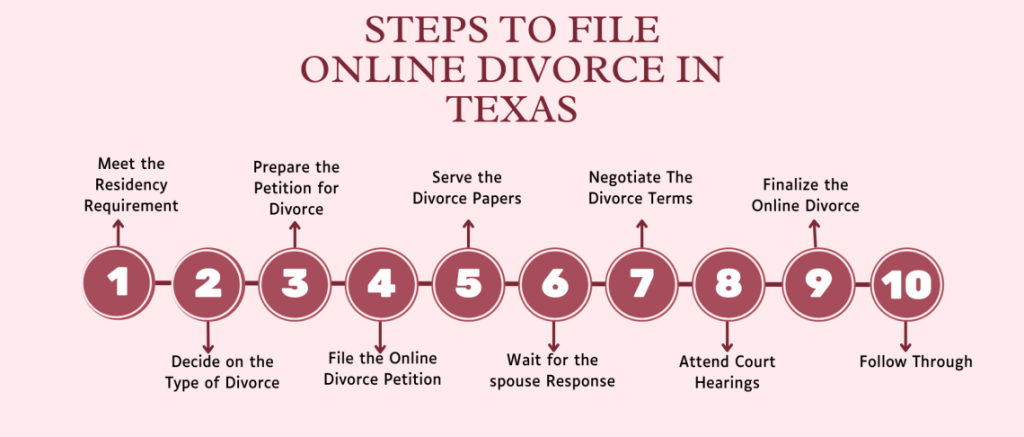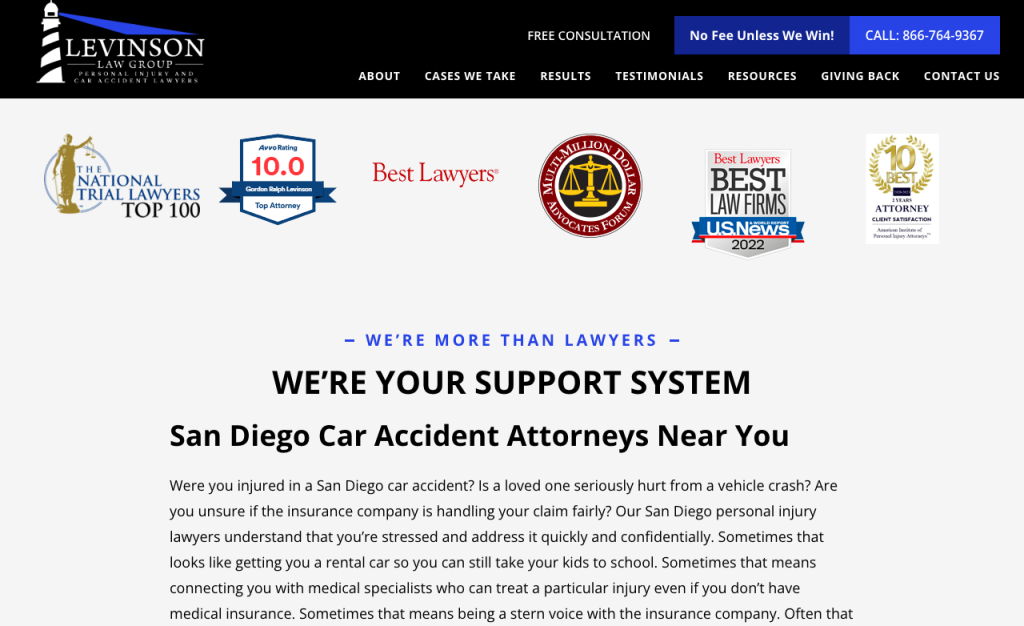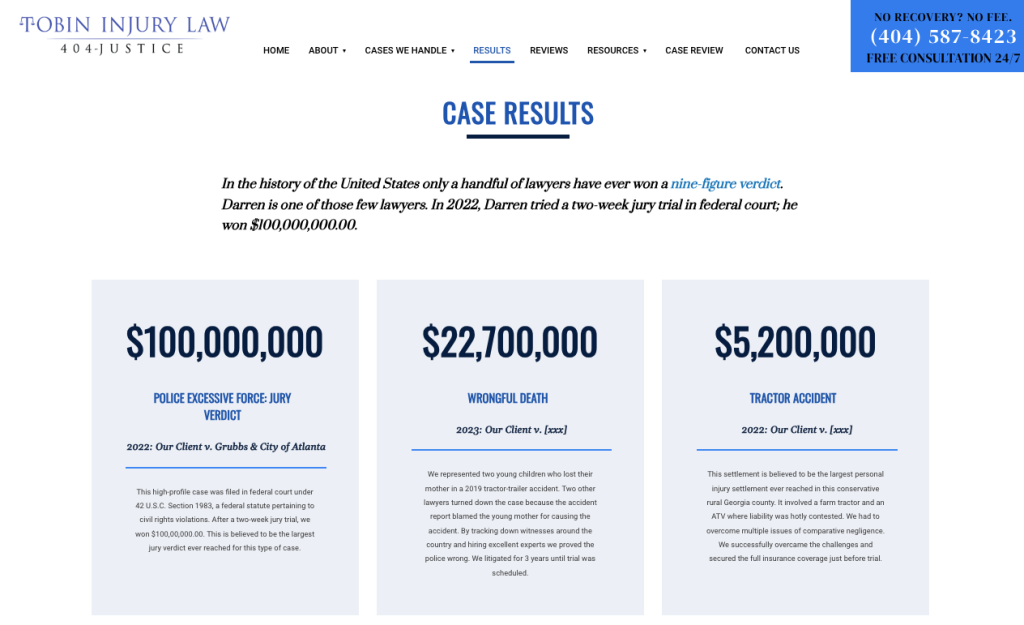EEAT & YMYL for Lawyers: Tips & Examples
Key Takeaways
- About 66% of call conversions in the legal sector come from organic search users, emphasizing the importance of SEO in attracting new clients.
- Implementing concepts like "Expertise, Experience, Authoritativeness, and Trustworthiness" (E-E-A-T) and "Your Money or Your Life" (YMYL) is crucial for achieving higher rankings and credibility with potential clients.
- Google values E-E-A-T qualities in online content to determine helpfulness and relevance, which can aid in better ranking in search results, making these aspects essential for legal content creation.
Search engine optimization (SEO) for lawyers can significantly enhance your ability to attract new clients and grow your practice.
In fact, around 66% of call conversions in the legal sector come from organic search users.
However, increasing your organic search visibility in the legal sector requires more than just basic SEO practices.
You also need to embrace concepts like “Expertise, Experience Authoritativeness, and Trustworthiness” (E-E-A-T) and “Your Money or Your Life” (YMYL). Doing so is key to achieving higher rankings and building credibility with potential clients.
In this post, we’ll explain why E-E-A-T and YMYL are so important for legal content and offer some tips for implementing these concepts across your firm’s website.
But first, what do these strange acronyms actually mean?
What Is E-E-A-T & YMYL Content?
E-E-A-T refers to content that demonstrates experience, expertise, authority, and trustworthiness.
Google looks for these qualities to determine the helpfulness and relevance of online content. And given Google’s aim to present search users with helpful and reliable information, creating content that embodies aspects of E-E-A-T may help you rank better in its search results.
Here’s what each member of the E-E-A-T family stands for:
- Experience: Content created by someone with first-hand experience of the topic in question.
- Expertise: Content created by someone with deep knowledge about the topic in question.
- Authoritativeness: Content created by someone considered a reputable, go-to source about the topic in question.
- Trustworthiness: Content that is reliable, accurate, and presented in a way that users can trust. This is the most important element of E-E-A-T, and it can be strengthened by increasing the other three elements.
The E-E-A-T concept is especially important for content that could significantly affect the reader’s health, safety, wellbeing, or financial stability. For example, tax advice, medical guidance, and news about critical events.
Google calls these YMYL—“Your Money or Your Life”—topics.
The Importance of E-E-A-T for Lawyers
E-E-A-T is particularly important for attorneys and law firms because legal content often falls into the YMYL category.
In other words, legal information and advice can significantly impact people’s lives. So ensuring your content demonstrates experience, expertise, authority, and trustworthiness is critical for both ethical and practical reasons.
Here are the critical aspects of E-E-A-T for legal content:
Experience and Expertise
Since potential clients seek legal advice and representation to resolve critical issues in their lives, they need assurance that the information they get comes from a knowledgeable and experienced source.
Demonstrating your legal experience and expertise helps reduce client anxiety and builds confidence in your firm’s capabilities.
Authoritativeness
Clients also want to know that other members of the legal community consider your practice to be a reliable source of legal information.
After all, most clients won’t possess the knowledge needed to evaluate your legal advice on their own.
Seeing your firm referenced by other respected professionals and cited in reputable legal publications shows clients that you’re an authority in the field.
Trustworthiness
Trust is fundamental when it comes to legal matters.
You need to instill confidence in your clients that the information you provide is accurate, reliable, and in their best interest.
Building trust means being transparent about your services and fees, presenting information honestly, and adhering to the highest ethical standards.
How to Maximize E-E-A-T on Your Law Firm’s Website
Now let’s look at ways to enhance E-E-A-T throughout your web content.
Publish High-Value, Fact-Checked Content
Produce content that provides accurate information and thoroughly addresses the needs of your audience.
This involves researching which topics are most relevant and beneficial to your target audience, ensuring all information is fact-checked, and citing credible sources. If you outsource your content production (as 24% of law firms do), make sure that a legal professional reviews it before publication to ensure accuracy.
Keep in mind that high-quality content is more likely to keep readers engaged, encourage repeat visits, and earn backlinks from other reputable websites. The combination of these factors signals to search engines that your content is reliable and authoritative, which can help boost your visibility in search results.
Some examples of high-value legal content include:
- Detailed legal guides: Comprehensive guides on specific legal topics such as divorce, estate planning, or personal injury claims. These guides should cover all aspects of the topic, providing valuable insights and practical advice.
Like this:

- Educational blog posts: Posts that discuss recent legal developments, changes in laws, and other relevant topics. This shows that your firm is knowledgeable and stays current with legal trends.
- FAQ sections: Answering common legal questions in a clear and concise manner to help address your potential clients’ immediate concerns.
Like this:

- White papers: In-depth reports on complex legal issues or comprehensive overviews of specific areas of law. You can also use these as lead magnets to attract potential clients.
- Video content: Short explainer videos on various legal topics, interviews with attorneys, and webinar recordings. Video content is particularly engaging and gives your firm a human face.
- Infographics: Visual representations of legal processes, timelines, or statistics. These graphics help make complex information more digestible and shareable.
Like this:

- Webinars and live Q&A sessions: Hosting webinars or live sessions where you discuss legal topics or answer questions in real time. This interactive content reinforces your expertise and allows potential clients to engage with you directly.
Showcase Your Qualifications
Highlighting your attorneys’ qualifications and professional experiences is another way to establish your expertise and authority.
This could mean displaying industry certifications or awards on your homepage to immediately convey credibility.
Like this example from Levinson Law Group’s homepage.

You could also create detailed bios for each of your practitioners to give prospects more details about their professional backgrounds and areas of specialization.
Like this example from Hunter Brown Law.

You should also include an author bio in any blog posts or articles you write to demonstrate the experience and expertise behind the information.
The point is to provide potential clients with plenty of evidence about your team’s credentials so you can build more confidence in your firm’s capabilities.
Highlight Client Testimonials and Case Studies
Showcasing testimonials from satisfied clients and highlighting notable case victories is yet another way to bolster your firm’s credibility.
Testimonials provide social proof of your firm’s effectiveness, illustrating real-world examples of how you have successfully helped clients in the past.
If possible, aim to include both video and written testimonials. Video testimonials tend to be more relatable and engaging, allowing prospects to see and hear directly from satisfied clients.
Like this:

Meanwhile, written testimonials and reviews are easier to compile and can be strategically displayed throughout your site.
Like this:

Both types of testimonials should provide some context about the challenge your client faced and how your firm delivered a successful resolution.
Case studies provide a deeper dive into specific instances where your firm has successfully navigated complex legal challenges. Unlike testimonials, they are written from your firm’s point of view. They detail the obstacles you encountered, the legal strategies you employed, and the outcome you achieved.
Here’s what a well-structured case studies page looks like:

Keep Your Content Up-to-Date
Finally, regularly updating your content will ensure it remains relevant, accurate, and useful.
This is essential since outdated legal content can mislead clients, cause compliance issues, and damage your firm’s credibility.
You should conduct frequent content audits to identify any inaccurate information and update the content as soon as you can. Doing so will also signal to search engines that your site is actively maintained, which can improve its credibility.
It’s a good idea to focus on creating evergreen content that stays relevant indefinitely but that can also be updated periodically for freshness and accuracy.
Final Thoughts
Implementing E-E-A-T principles doesn’t just help enhance your firm’s credibility and search engine rankings, it also fulfills an ethical responsibility to your audience to provide accurate and reliable legal information.
By applying the tactics mentioned above to your website, you’ll be well on your way to building a stronger online presence, attracting more visitors, and converting more prospects into clients.
Lastly, if you’re looking to outsource your law firm’s digital marketing services, don’t hesitate to reach out to HigherVisibility today.
